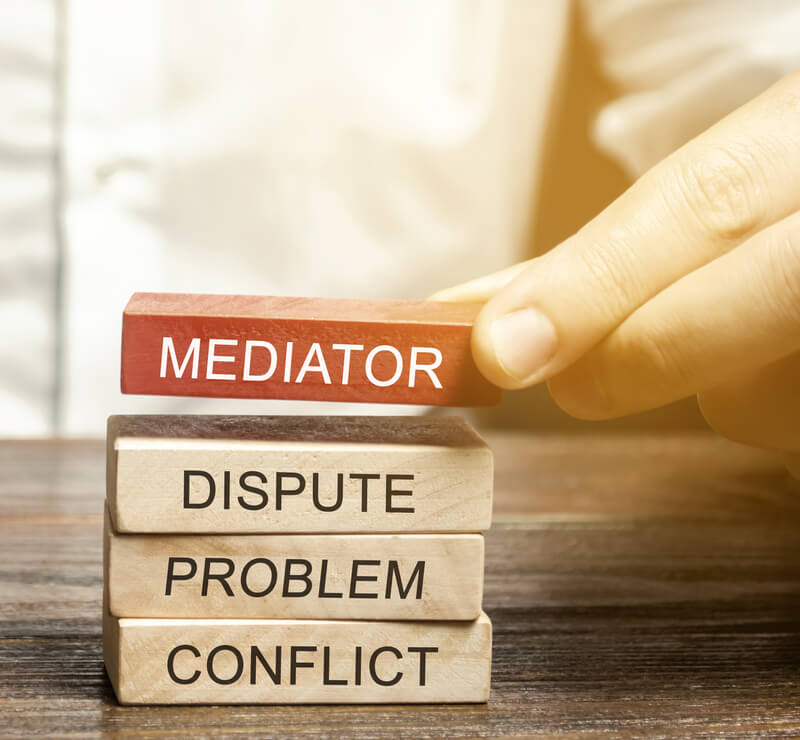Are you facing a challenging dispute or conflict that seems to have no end? Whether it’s a workplace disagreement or a family issue, achieving a resolution can be frustrating. But there is a solution that offers a more collaborative and efficient approach: mediation.
Mediation is a proven method that guides parties through a constructive negotiation process. With the help of a neutral mediator, you can find common ground, communicate openly, and explore creative solutions.
Don’t let disputes linger and escalate further. You can answer some bigger questions like how much does mediation cost. You can start working toward a resolution that benefits everyone by reading this article and asking for legal help.
Understanding Mediators. What Is Their Role?
The mediator’s primary objective is to foster a cooperative and non-adversarial environment. These skilled professionals are not decision-makers. Instead, they encourage understanding and empathy while maintaining strict impartiality. It’s a good idea to get a picture of what a mediator does, step by step.
Mediators have a unique set of qualities that are essential for their role. They must demonstrate exceptional communication and active listening skills to identify the underlying issues. Empathy is another critical tool that allows them to foster a sense of trust. Furthermore, they must demonstrate flexibility and adaptability to different approaches. Each component mentioned can lead to finding common ground and exploring creative solutions.
These professionals can come from diverse career backgrounds, including law, social work, or psychology. While legal experts can be valuable, it is not a strict requirement. Many undergo specialized training and certification programs to hone their craft. This education includes conflict analysis, communication techniques, ethics, and cultural sensitivity.
What a Mediator Does
The first task of a mediator is to maintain impartiality. Their neutrality is crucial to establish credibility and successfully mediate the conflict. This dedication creates an atmosphere where each party feels heard and respected. They should feel encouraged to open up about their concerns without fear of judgment.
Consequently, one of the primary functions of a mediator is to facilitate effective communication. Breakdowns in how parties talk to one another are often at the heart of disputes. It is vital to ensure that everyone has the opportunity to express their perspectives, emotions, and underlying interests.
A safe and supportive environment is mandatory for this process. The mediator should set ground rules for respectful behavior, confidentiality, and ethical boundaries. These ground rules should encourage participation, reduce hostility, and create a safe space to explore solutions.
Next, it is necessary to delve deep into the needs and motivations of each party. Defining these elements focuses on conversations around fundamental interests. It also reframes the discussion and keeps it from an adversarial win-lose mindset.
The mediator uses this understanding to guide the negotiation toward potential solutions. This phase can include brainstorming and generating options that address the hot topics.
However, this activity does not remain in the theoretical framework. Mediators train to assess the practicality of proposed solutions. They will evaluate the consequences and consider the potential implications. Accordingly, they may ask clarifying questions or offer insights to allow for informed decisions.
Finally, the goal of the mediation process is to draft a formal agreement. This contract captures the terms and conditions of the resolution. It should be clear, comprehensive, and mutually beneficial.
What Mediators Do Not Do
A fundamental principle of mediation is that the mediator does not impose solutions. Unlike a judge or arbitrator who renders a binding decision, the mediator facilitates a voluntary process. It is not up to them to dictate the outcome of the dispute. Instead, they empower others to explore and craft solutions. This approach maintains autonomy and encourages a sense of ownership over the resolution.
Moreover, mediators are not legal advisors and do not offer counsel. They may have legal backgrounds, but they must maintain a distinct separation of their role as neutral professionals.
It is also crucial to understand the lines between mediation and counseling. Therapy focuses on addressing emotional or psychological issues. Meanwhile, mediation centers on resolving conflicts. While emotions may surface naturally during the process, a mediator is not a therapist.
When to Seek Mediation
Mediation is a versatile and effective method for conflict resolution. It has been successful in interpersonal conflicts, workplace disputes, family disagreements, and more. It also works well for issues that require long-term relationships because it preserves communication and encourages cooperation. However, it may not be as appropriate for cases involving severe power imbalances.
Opting for mediation over traditional litigation offers several advantages. Firstly, mediation is a much quicker process. It typically takes weeks or months to resolve a dispute. This timeline is much different than lengthy and expensive legal proceedings. It is also more cost-effective because it avoids the high expenses of protracted legal battles.
Discuss Mediation with a Local Attorney
Choosing the right approach for resolving a dispute is crucial to achieving a satisfactory outcome. Its voluntary nature and flexibility make it an appealing option for many conflicts.
Consider talking to a local lawyer if you face a challenging dispute. They may recommend a professional mediator and represent you during the process. They will also counsel you on when to move on to litigation.
Our representatives are available 24/7 at (866) 345-6784 to provide a referral. You can also complete our brief form if preferred.

